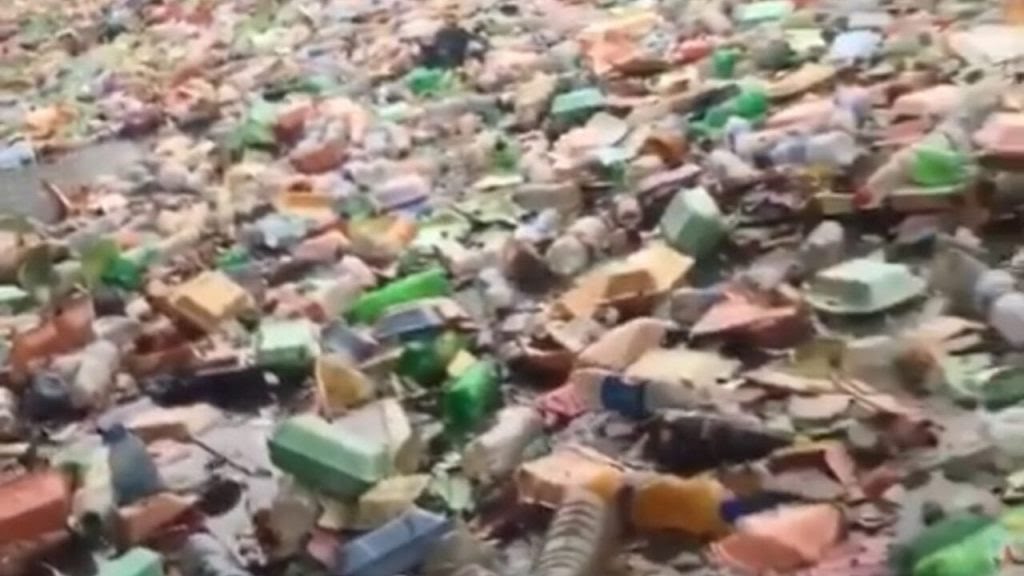The Lagos State Government has taken a significant step in environmental conservation by imposing a ban on the usage and distribution of single-use plastics, including Styrofoam, within the state.
In an official statement released on Sunday, Tokunbo Wahab, the Commissioner for the Environment and Water Resources, announced the prohibition, emphasizing the state’s commitment to tackling environmental challenges.

This declaration aligns with the calls made by stakeholders last year, urging the Federal Government to enforce a ban on various single-use plastic items, starting with styrofoam, microbeads, carrier bags, plastic spoons, straws, and disposable cups, which lack economic value in terms of recycling.
Wahab, as quoted by the ministry’s Director of Public Affairs, Kunle Adeshina, justified the decision by highlighting the severe environmental threats posed by single-use plastics, especially the non-biodegradable nature of styrofoam. He pointed out that the careless distribution and consumption of these materials had been causing constant clogging of the state’s drainage channels.
Stressing the detrimental impact, Wahab reiterated that styrofoams constitute a significant portion of the litter regularly handled by the Lagos State Waste Management Authority, particularly in major roadways and marketplaces.
Adeshina emphasized the need for strict enforcement, stating that both the Kick Against Indiscipline and the state waste management Authority would take measures against styrofoam manufacturing and distribution companies to prevent further environmental harm.
He said, “The state took the present action, relying on several enabling laws and regulations such as the National Environmental (Sanitation and Waste Control) Regulation 2009 which was established under NESREA Act that prohibited and specifically banned single-use plastic in the country but has not been enforced.
“The 2017 State Environmental Management and Protection Law which states under section 56(I) (y) prevent, stop or discontinue any activity or omission, which is likely to cause harm or has caused harm to human health or the environment.”
He advised residents and consumers to adopt the habit of utilising reusable water bottles and food containers for their food and beverages and to shun single-use plastics and styrofoam packaging.
“Our state cannot be held hostage to the economic interests of a few wealthy business owners compared to the millions of Lagosians suffering the consequences of indiscriminate dumping of single-use plastics and other types of waste. The well-known consequences include climate change, flooding, and diseases like cholera.
“The convenience of single-use plastic comes at a huge cost to society. We must all make small sacrifices for our collective well-being.”







